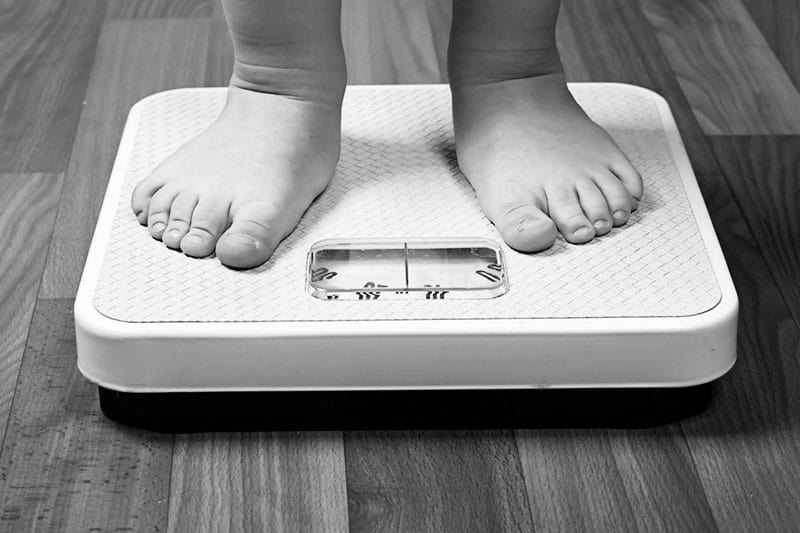
How To Boost Your Child’s Body Confidence
Written by Katie Hintz-Zambrano
Photography by Photo Via Care2
Struggling with one’s body image is an issue that plagues many adults. And, of course, it’s something that often starts in one’s tweens, teens, or much earlier. Therefore, it’s a hot topic for mothers to educate themselves on. After all, no parent wants to see their child’s self esteem take a nose dive based on societal expectations of what they should look like.
Marci Warhaft-Nadler, the author of The Body Image Survival Guide for Parents: Helping Toddlers, Tweens, and Teens Thrive, says moms and dads are key in helping their kids combat these outside influences. “There’s only so much that we can control. We can’t have them never watch TV or look at a magazine,” she says. “We can’t control the messages they get, but they can control whether or not they choose to accept them. And that comes from how strong they feel inside.”
Here, Warhaft-Nadler shows us a list of ways we as parents can build our kids up and give them the best shot possible.
1. Watch what you say. Be the person you’d like your kid to grow up to be. That means really watching the way we talk about ourselves. If we want our kids to feel confident about their bodies, we have to show them how. Promote body-positive talk, learn how to accept compliments, and don’t put yourself down. Let your kids know it’s okay to like yourself.
2. Watch what other people say. If you have a relative or friend who isn’t very body positive or talks about weight too much, the rule has to be that when they come to your house around your kids, they watch what they say. If they have a problem with that, then that’s their problem. Your kids come first.
3. Don’t ban fat talk, ban negative fat talk. Fat has been made a bad word, but it’s an essential nutrient that we need for our organs to work properly, for shiny hair, clear skin, etc. So, don’t talk about fat like it’s the worst thing in the world. Like the expression says: “I have fat, I am not fat.” We don’t want to create fear around fat and “good food” vs. “bad food.” Everything in moderation is a healthier message.
4. Expose your kids to all different bodies. As soon as your child is born, take away the fashion and fitness magazines you might have sitting around the house and replace them with family albums. Put up pictures of family, too, so what they’re seeing is pictures of real bodies and real people. The more they see normal, healthy bodies, the more likely that when they go out and see the Photoshopped magazine images, they’ll say, “Now, that’s weird,” instead of thinking “I’m weird.” Show them athletic bodies and expose them to the idea of strength. Go to the local police or fire station and be introduced to people that are heros and see what they look like. It’s all about showing your kids that there isn’t just one size, because if you look at the people that are celebrities, it seems that way. Let your children know that famous people aren’t the most important people, even if we see them all the time.
5. Call your kids pretty or handsome…amongst other things. It’s okay to feel pretty. We should all feel pretty. But it’s important to focus more on who your kids are than how they look, so that they focus on those things, too. Tell your kids they are smart, funny, interesting, and talented, which is a great way to build their self esteem. But don’t completely steer away from calling them pretty or handsome. Being a great person or having a great smile makes you beautiful. Our kids think we’re beautiful because of the way we make them feel. We can compliment them in the same way.
6. Get kids involved in an extra-curricular activity. It can be anything from sports to art, just something they are interested in that is not image-related. It’s always good to have another place where they are getting support, where there’s a new set of coaches and friends. It’s huge for self-esteem. These activities are also a place where your child is appreciating what his or her body can do, and not how it looks.
7. Prepare your kids for the changes of puberty. Weight gain and having a bigger appetite around puberty is completely normal, but tweens often don’t know that. Show your kids pictures of yourself at that awkward stage and let them know that it’s a transitional period. You don’t want to work against your body during this period, you want to feed it well and exercise and help it get to where it’s going. Also, if your children start comparing their tween bodies to those seen in popular TV shows, explain to them that many of those actors are much older than the role they are playing, and thus have more developed bodies.
8. If your child is overweight or underweight, acknowledge it, not in terms of weight, but in terms of them wanting to have more energy or feeling stronger. Suggest the two of you go for a walk after dinner or go to the grocery store and figure out some new recipes. Never make changes for one kid, always make them for the whole family. Make it positive, about how your child wants to feel, and not how they look. It’s not about fitting into skinny jeans, it’s about feeling better.
9. It’s important to not confuse eating disorders with body image issues. You can have body image issues without eating disorders and vice versa. Eating disorders aren’t about body image, they are about control, and often develop after some trauma or stress is occurring in one’s life. A child might feel that they can’t control a specific situation, so they control their body instead. So, while it seems like a body image thing, it’s not. The best thing parents can do is to ask about what’s happening at school or home, instead of asking about the body changes.
10. You can do a lot just by talking to your kids. Check in with them constantly. If you see an image or product that seems over-sexualized or over-Photoshopped, that’s something you can point out to your kids. Also, it’s okay to put your foot down if your child wants a certain toy, clothing, or makeup that you don’t want them to have. Explain why you don’t think it’s appropriate and that you have different standards than other parents. As kids get older, continue to watch what you say about your own bodies. Don’t talk to them like adults. They are still your children.
Share this story



